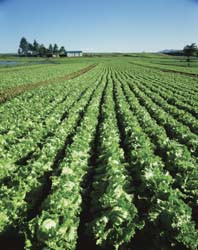Modelling producer organisations
POs are associations of farmers, and thus important players in European food markets. They improve economic performance and potentially result in fairer distribution of profits. The EU-funded PRODORG&FOODSUPPLY (Producer organizations in food supply chains) project investigated POs. The study considered how POs work, and their interaction with other players in food supply chains, including processing and retail companies. Training activities were also on the agenda. The 15-month undertaking concluded in September 2014. Research addressed three foci, first being quality choices in cooperatives and investor-owned firms. The team modelled choices involving private information exchange between farmers and buyers. Results showed that design of optimal contracts depends on the nature of the information. The second topic further modelled formation and participation in POs, including shared investment in the group and sacrifice of market opportunities. That model represented a step towards analysis of the effects of downstream concentration on the collective. Finally, the team addressed certain problems regarding private labelling, and collective reputation, yielding a suggested governance structure that reduces conflicts. Training activities included sending researchers on numerous high-level economics courses. Researchers also participated in seminars and research project meetings, plus organised discussion groups and an international workshop. Project results prepared the way for subsequent economic analysis of POs in agricultural markets. Hence, policymakers gained an improved understanding of the organisations, including their dynamics and impacts.




